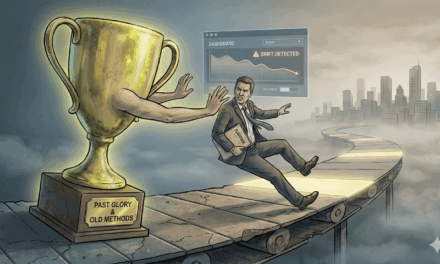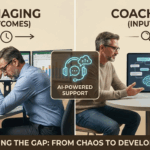
Why Do We Make Technical Sales So HARD?

Why do we keep making technical sales and demo calls so HARD? They’re not. They’re really not! You just need to get out of your own way.
Let’s assume you’re selling a worthwhile product to an interested audience. The only way to know whether there is a strong fit is to get through the demo meeting – that’s where tech deals live and, when appropriate, die. But too many deals die because of a lousy demo meeting, and not because there isn’t a fit! Does this happen to you?
If sellers know how to perform basic qualification, they should be sharing the qualification specifics with the Solution Engineer who will help them run the demo call. (It should also go in the CRM!) The two of them should be on the same page going into the demo. This avoids wasting the customer’s time, and focuses the demo on answering the customer’s questions. After all, the customer discovered a need, decided to consider your product, explained themselves to the seller, and agreed to a demo. They don’t want to repeat themselves, and they don’t want to be lectured – they’re trying to move forward!
But most companies I’ve talked to don’t perform complete qualifications, and they don’t share them with the Engineers! And most SEs don’t require a background on the customer’s needs before they accept the demo meeting. It’s a recipe begging for a frustrated customer!
These are the 7 things your seller and your engineer need to know and agree on BEFORE you both jump on a demo call.
- What is the buyer’s presenting need?
- What’s the business impact of that need?
- What are the buyer’s qualification criteria?
- What do the buyers need to know when the demo is over?
- Who needs to know it? Who is making the decision?
- What do buyers need to BELIEVE to move forward?
- What do we want buyers to ACT on to move forward?
That’s it! If the seller and the engineer are aligned on the answers to these questions, they are going to provide a concise demo focused on customer needs. They will customize their work to engage the specific use case of this unique customer. Most importantly, they will close more business. A lot more.
Coincidentally, there are 7 reasons your customer will agree to a demo, and they want to understand ALL of it.
If you and your SE are aligned on the above, you can address the customer’s needs below:
- Understand Relevant Features and Functionality
- Clarify Technical Details – Technical dependencies and integration
- Validate Vendor Claims – Will it work in the customer’s use case?
- Evaluate Fit – Assess Features, Benefits and ROI
- Determine long term suitability for their use case
- Compare with Alternatives – Make an educated purchase decision
- Assess End User Experience
Easy peasy. But l hear from technical buyers that they HATE demos, even when they know they need them. Why? Seven more points:
Demos are too long and unfocused
Many demos suffer from “death by a thousand clicks” where the presenter shows every single feature. Don’t get feature happy! Show only what’s relevant.
Lack of personalization
94% of buyers consider demos tailored to their specific use cases and preferences essential. 82% of buyers say they rarely happen. They’re bored and feel like hostages!
Insufficient hands-on experience
Buyers want to try the product themselves rather than just watching a presentation. Get interactive!
Lack of transparency around pricing
Many buyers dislike when pricing information is withheld until the end of a demo or sales process. If you need more information before you can provide an accurate quote, tell them exactly when you’ll be able to give them a window on pricing.
Demos feel like one-sided sales pitches
Buyers prefer interactive discussions addressing their concerns, not being “sold to”.
Lack of credibility or proof points
Buyers want case studies, references, or other 3rd party evidence the product works in similar cases.
Overwhelming technical complexity
Your engineers are proud of their work, but for most folks on the first demo call, the deep tech details aren’t necessary. For complex products, demos can be overwhelming if they don’t break down the functionality effectively into relevant and digestible parts. Save wandering in the technical weeds for an engineers-only call.
The mess described above happens exclusively due to poor qualification, or because relevant qualification wasn’t shared with the Solution Engineer. How did so many of us go so far adrift? Darned if I know.
Here’s the fix:
- If you do a lousy qualification, fix it. It needs to address the 7 qualification points above. (The last two are internal points – don’t ask your customer!)
- If you don’t share those 7 points with your Solution Engineers for every demo, change that. You’re wasting everybody’s time if you don’t. And annoying SEs is bad, but annoying customers is worse!
- Map your demo call to the 7 customer needs above. Decide in advance who will address what on the call. Engineers can lead, or sellers can lead, but you need to decide ahead of time to ensure you stay within your time limits.
- Avoid the 7 reasons tech customers hate demos. If you’ve implemented the first three fixes above, you’re well on your way to avoiding these problems!
You’ve got this. Go out and crush quota!



































